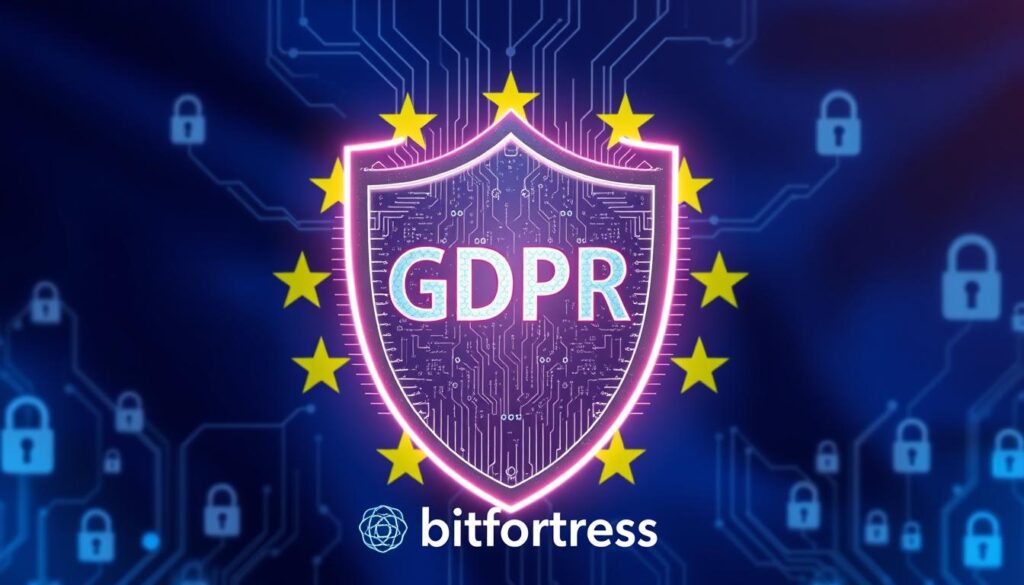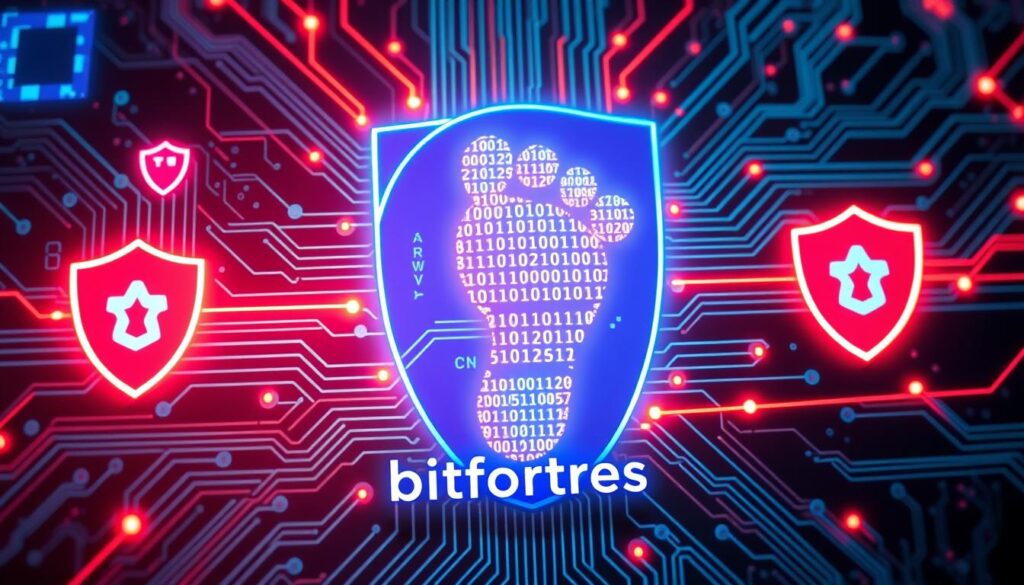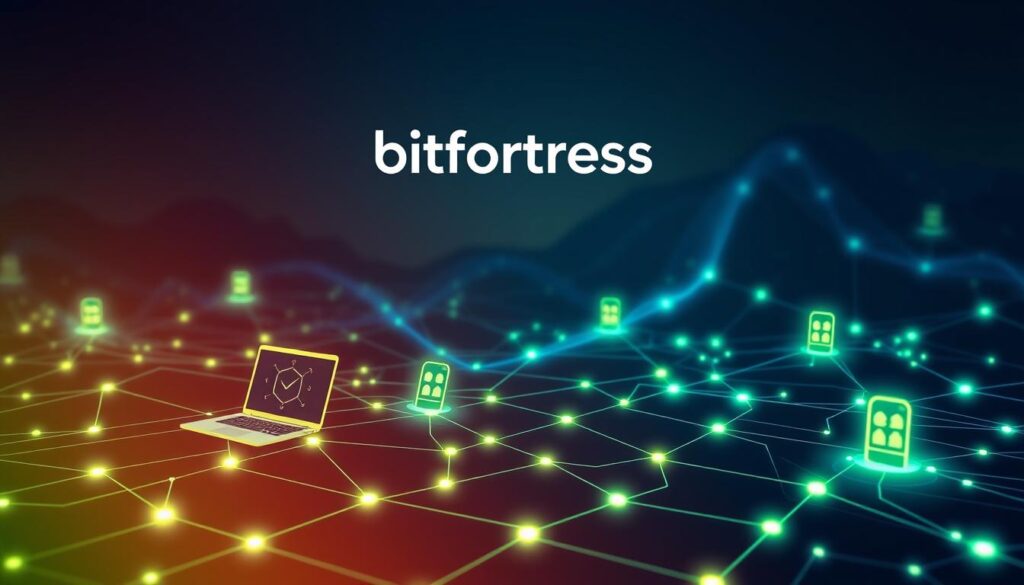In today's world, our lives are deeply connected to the internet. This means we must protect our online privacy. Our personal data and what we do online can be at risk of being shared without our permission.
This guide will teach you how to keep your online life safe. We'll talk about the dangers of sharing too much online and how to protect your digital identity. You'll learn about privacy laws and how to use advanced tools to keep your online presence safe.
Key Takeaways
- Understand the importance of protecting your personal data and online privacy
- Learn about the risks of sharing information online and the impact of data breaches
- Discover best practices for enhancing your online security and privacy
- Familiarize yourself with privacy laws and regulations that safeguard your digital rights
- Explore advanced privacy tools and techniques to secure your digital footprint
Understanding the Importance of Internet Privacy
In today's digital world, keeping our internet use private is key for both people and businesses. We share more personal info online, making us more at risk. It's vital to understand these risks to keep our online lives safe.
The Risks of Sharing Personal Data Online
Sharing personal info online, like on social media or while shopping, can lead to big problems. Identity thieves might use this info for fraud or to harm your reputation. Also, others might use your data without your okay, making you lose privacy and control over your online actions.
The Impact of Data Breaches and Identity Theft
Data breaches and identity theft can have big effects. Victims often deal with financial issues, bad credit, and the hard work of fixing their reputation. These events can also make people feel unsafe and lose control over their online lives.
"In the digital age, privacy is a key part of keeping us safe. It's crucial to protect our online identities and data to keep our financial, social, and reputational well-being safe."
Internet Privacy: Best Practices for Online Security
Keeping your internet use private and secure is key in today's digital world. To shield your personal data and online tracks from unwanted eyes, adopting the right practices is crucial. We'll look at the top ways to boost your online safety and control your digital trail.
First, it's important to surf the web safely. This means using a VPN to encrypt your internet, turning on two-factor authentication, and being careful with the sites you visit and what you share online. These steps can greatly lower the chance of data theft and unauthorized access to your info.
Also, managing your online presence well is key. This means checking and updating your privacy settings on social media, sharing less personal info online, and being aware of cookies and tracking tech that websites use to target you with ads.
To boost your privacy even more, think about using search engines, email services, and browsers that focus on protecting your data. These tools can cut down on how much of your online activity, location, and other personal info third parties collect and use.
By sticking to these online security tips, you can protect your internet privacy, data protection, and overall digital health. Remember, being informed and careful helps you handle the complex online security and cookie tracking world better.
| Best Practices for Online Security | Benefits |
|---|---|
| Use a Virtual Private Network (VPN) | Encrypts your internet traffic, hides your IP address, and protects your browsing history from prying eyes. |
| Enable Two-Factor Authentication | Adds an extra layer of security to your online accounts, making it harder for unauthorized individuals to gain access. |
| Review and Update Privacy Settings | Allows you to control the amount of personal information shared on social media and other online platforms. |
| Use Privacy-Focused Tools | Search engines, email providers, and web browsers that prioritize user data protection can help minimize the collection and use of your personal information. |
"The best way to predict the future is to create it." – Peter Drucker
Privacy Laws and Regulations: Know Your Rights
In today's digital world, understanding internet privacy can feel overwhelming. But it's key to know your rights and the laws that protect your personal data. The General Data Protection Regulation (GDPR) is a big deal. It sets new rules for how companies handle your data and get your okay to do so.
The General Data Protection Regulation (GDPR)
The GDPR started in 2018. It covers all companies in the European Union (EU) and those outside the EU that sell things to EU people. This law has important rules that help you and make companies follow strict rules:
- User Consent: Companies must get your clear okay before they collect, use, or share your personal data.
- Data Subject Rights: You can ask for your data, fix mistakes, delete it, and move it to another service.
- Data Protection Principles: The law has rules like using only what you need, for a specific reason, and keeping data safe.
- Data Breach Notification: If there's a data leak, companies must tell the authorities and you within 72 hours.
The GDPR affects more than just the EU. Many companies worldwide follow its rules to protect your online privacy and make sure they have your permission.
| Key GDPR Provisions | Description |
|---|---|
| User Consent | Explicit consent needed for collecting and using your data |
| Data Subject Rights | Right to see, fix, delete, and move your personal data |
| Data Protection Principles | Rules for using less data, for a clear reason, and keeping it safe |
| Data Breach Notification | Must tell authorities and you about data leaks within 72 hours |
Knowing about the GDPR and other privacy laws helps you protect your online life. It's the first step to keep your digital rights safe. Stay updated and watch out for your privacy to control your online world.

Protecting Your Digital Footprint
In today's digital world, our online actions create a trail that links back to us. This includes our browsing, social media posts, online buys, and search queries. Keeping your digital footprint safe is key to protecting your internet privacy. It also helps keep your personal info safe and avoids data protection problems.
To reduce your digital footprint, be careful with what you share online. Don't share too much personal info on social media and check your privacy settings often. Also, be careful with the websites you visit and the links you click. These can show what you're doing online.
- Regularly review and update your social media privacy settings
- Avoid oversharing personal information on online platforms
- Use incognito or private browsing modes for sensitive activities
- Utilize browser extensions or tools that block trackers and ads
Deleting your online data and histories is another good way to protect your digital footprint. This means clearing your browser cache, deleting old accounts, and stopping data collection programs when you can.
| Action | Benefits |
|---|---|
| Regularly delete browsing history and cached data | Reduces the amount of personal information available online |
| Opt-out of data collection programs | Limits the amount of data companies can gather about you |
| Deactivate or delete old online accounts | Eliminates unnecessary digital footprints |
By managing your digital footprint well, you can boost your internet privacy. This reduces the risk of data protection breaches. It also gives you more control over how you're seen online.

Advanced Privacy Tools and Techniques
As the digital world changes, keeping your internet privacy safe needs more than basic steps. Exploring advanced privacy tools and methods can greatly boost your online safety. It helps keep your private info safe from those who shouldn't see it.
Encrypting Your Data and Communications
Data encryption is key to modern internet privacy. It turns your data into a secret code. This way, if someone intercepts your info, they won't be able to read it. It's super important for keeping your personal stuff, like chats, bank info, and more, safe.
Using Virtual Private Networks (VPNs)
Virtual private networks (VPNs) are a big help for online privacy. They create a secure, encrypted link between your device and a server far away. This hides your IP address and what you're doing online. VPNs are great for keeping you safe on public Wi-Fi or when you want to see content blocked in your area.
| Feature | Benefit |
|---|---|
| Encryption | Safeguards your data and communications from unauthorized access |
| IP address masking | Hides your true location and online activity |
| Public Wi-Fi protection | Secures your connections on unsecured networks |
| Geo-restriction bypass | Allows access to content restricted by geographical location |
Using these advanced privacy tools and techniques can really improve your online security. It helps protect your digital life from threats.

Conclusion
As we wrap up our look at internet privacy, it's clear that keeping our data safe online is key. We've looked at the dangers of sharing too much personal info, the effects of data breaches, and our rights under privacy laws. Laws like the GDPR are important for our online safety.
To protect our online privacy, we should use encryption, VPNs, and manage our online presence carefully. These steps help us stay safe in the digital world. They make sure our personal info stays out of the wrong hands.
Internet privacy affects us all, not just individuals. It's vital for a secure and trustworthy online space. We need to keep an eye on our online activities and push for better privacy laws. Together, we can make the internet a safer place for everyone.















